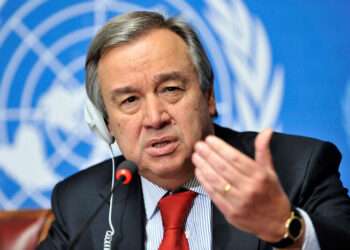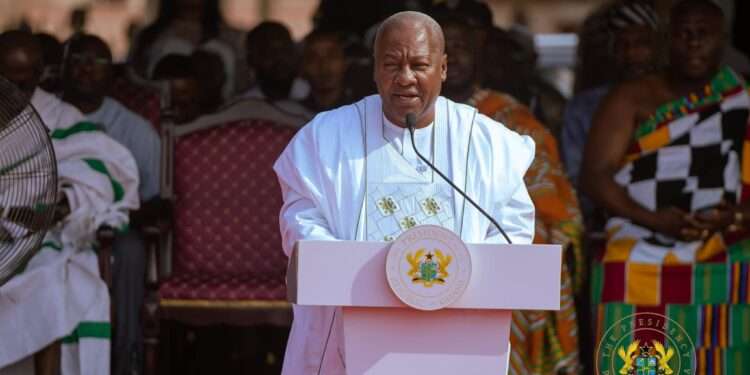David Malpass, the President of the World Bank, has disclosed that he will step down from his post in June, leaving the organisation almost a year before his term is due to end.
David Malpass announced his decision on social media, without providing a specific reason for his departure. In a statement, Malpass said he is proud of what he has accomplished at the bank, which oversees billions of dollars in lending to developing countries each year. Financing including climate financing has reached record levels under his leadership, he added.
“By the end of the fiscal year, we will be well-positioned to feature sustainability more clearly in the mission of the World Bank Group, align the mission with resources, and set in motion an effective evolution to increase the institution’s impact on people in the developing world,” he wrote in a statement shared on LinkedIn.
Malpass, who was sceptical of multilateral institutions, has long been seen as a controversial pick to lead the World Bank.
The pick of former US President Donald Trump, has been criticised as a climate change denier. Last year, the White House rebuked him after he said he did not know if fossil fuels were driving climate change. However, he later apologised for the remarks.
Malpass started his five-year term in April 2019, after serving in the US Department of Treasury during the Trump administration.
At an event in September, former US Vice-President Al Gore called for his replacement, saying the bank was not doing enough to raise funding for climate issues and it was “ridiculous to have a climate denier as the head of the World Bank.”
Asked later to respond, Malpass defended himself, but declined to say that fossil fuels caused climate change.
In a subsequent interview, he admitted that he did not do a good job answering or hearing the question and that man-made emissions were “clearly” contributing to climate crisis.
US Treasury Secretary Janet Yellen, who has been pressing for reform at the World Bank and other development banks, thanked Malpass for his service in a statement that alluded to the controversy.
“While we all must continue to raise our collective ambitions in the fight against climate change, during President Malpass’ tenure the World Bank has made important recent advances in this area,” she said.
The US Treasury Secretary noted the US would put forward a new candidate to lead the bank soon.
The US is the World Bank’s largest shareholder and a major source of its funding. An American has led the institution since its start in the 1940s, when it was created to help rebuild Europe in the aftermath of the Second World War.
Brief Background of David Malpass
David R. Malpass was selected as 13th President of the World Bank Group by its Board of Executive Directors on April 5, 2019. His five-year term began on April 9.
Mr. Malpass previously served Under Secretary of the Treasury for International Affairs for the United States. Mr. Malpass represented the United States in international settings, including the G-7 and G-20 Deputy Finance Ministerial, World Bank–IMF Spring and Annual Meetings, and meetings of the Financial Stability Board, the Organization for Economic Cooperation and Development, and the Overseas Private Investment Corporation.
In 2018, Mr. Malpass advocated for the capital increase for the IBRD and IFC as part of a reform agenda featuring sustainable lending practices, more efficient use of capital, and a focus on raising living standards in poor countries. He was also instrumental in advancing the Debt Transparency Initiative, adopted by the Bank Group and the IMF, to increase public disclosure of debt and thereby reduce the frequency and severity of debt crises.
Before joining the U.S. Treasury, Mr. Malpass was an international economist and founder of a macroeconomics research firm based in New York City. He served as chief economist of Bear Stearns and conducted financial analyses of countries around the world.
Previously, Mr. Malpass served as the U.S. Deputy Assistant Secretary of the Treasury for Developing Nations and Deputy Assistant Secretary of State for Latin American Economic Affairs. He focused on an array of foreign policy and development issues, including U.S. involvement in multilateral institutions; the Bank Group’s 1988 capital increase, which supported the creation of the Bank’s environment division; the Enterprise for the America’s Initiative; and Brady bonds to address the Latin American debt crisis. He also served as Senior Analyst for Taxes and Trade at the U.S. Senate Budget Committee, and as Staff Director of the Joint Economic Committee of the U.S. Congress.
Mr. Malpass has served on the boards of the Council of the Americas, Economic Club of New York, National Committee on U.S.–China Relations, Manhattan Institute, and Gary Klinsky Children’s Centers, as well as various for-profit entities. He is the author of numerous articles on economic development.
Mr. Malpass earned his bachelor’s degree from Colorado College and his MBA from the University of Denver. He was a CPA and undertook advanced graduate work in international economics at the School of Foreign Service at Georgetown University and has studied Spanish, Russian, and French.
Mr. Malpass and wife Adele Malpass, a journalist, live in Washington, D.C. They have four children and share a strong family interest in development issues.
READ ALSO: There is money in Ghana, Domestic Markets Can Raise Money For Development- Abena Amoah





















